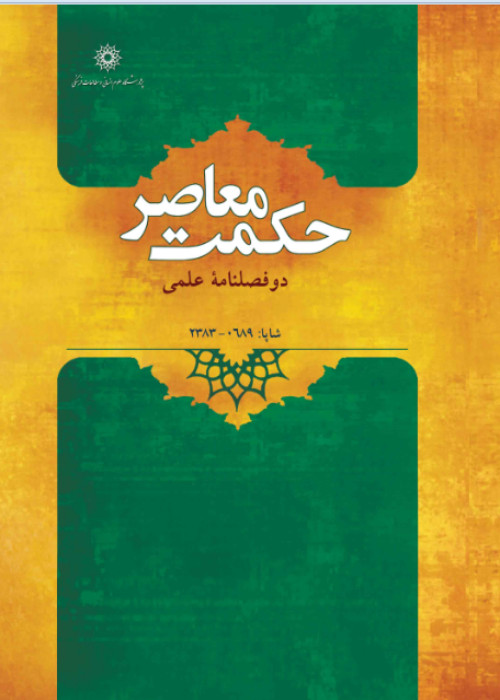Sadr al-Din Shirazi and natural human rights
There have always been two viewpoints on the human rights in the history of Western philosophy: some philosophers adhere to Natural Law, while the others follow Positive Law. Among modern philosophers, Thomas Hobbes and John Locke, and among the contemporary ones, Lon L. Fuller and John Finnis, are known to be followers of natural law.Positive law refers to the rights established by the legislator and recognized through interpersonal conventions and contracts; people and states may establish or lift them. As a matter of fact, this kind of law is focused on a set of rules and regulations which gains force through guarantee and acceptance of social institutions and governs a certain community during a specified time frame.Natural law, with its characteristics, i.e. universality, necessity, and stability, began to popularize in the West in the third century AD, but it is rather newly-established among Islamic scholar. It constitutes the origin of many governing rules in communities, so this topic deserves considerable debate and discussion by Islamic scholars.Rights, observance, setting up justice, and preventing injustice are of utmost importance in Islamic teachings; they also influence many religious acts, and Islamic doctrines strongly enjoin it and emphasize its moral, legal, and ideological necessity.Undoubtedly, the concept of human rights is one of the modern challenges facing Islam in comparison with the West, and it is going to take a more serious form in the future.The current paper did not search for strong and weak points of the theory of rational decency and obscenity and natural human rights and did not pass any judgment thereof; this paper aimed to analyze the ideas of Sadr al-Din Shirazi (Mulla Sadra) as the founder of transcendental philosophy/theosophy, esp. the theory of decency and obscenity, and sought to answer the following question from his viewpoint: In Mulla Sadra’s opinion, are decency and obscenity rational and inherent? If so, is it possible to attribute the belief in natural human rights to him? The Study of these items from the viewpoint of Mulla Sadra and the analysis and evaluation of them will provide answers to above questions.The current paper focused on proving the following line of argument based on its multiple premises:Premise 1: Duties/obligations bring rights with them.Premise 2: Duties are congeneric with their rights. For instance, if a duty is conventional, its interrelated right will be conventional too, and if it is religious, i.e. originating in a divine command, the interrelated right will be religious too, having its roots in a divine command and providence.From Mulla Sadra’s perspective, duties, decencies, and obscenities are inherent.
Mulla Sadra believes that rights accompanying duties are inherent, incorporated in the center of reality. Apophatic interpretation of the duty as it is necessary to respect the freedom/ liberties of humans (It is decent to respect the freedom of humans.) consists in: “Humans should not be deprived of freedom.” (It is obscene to deprive humans of the freedom.) This duty is interrelated with a human right: humans enjoy the right to freedom.
Methods and Material:
we did this within the framework of Mulla Sadra’s perspective on ethical values. The data were gathered through library research and the conclusions were reached using a logical, deductive method.
Although the discussion of rights is apparently different from the discussion of ethical values, these two topics can be linked according to some views; the foundations raised in one area can be extended to another, and we may conclude that although Mulla Sadra did not expressly state his acceptance of natural human rights, his ideas were in conformity with Inherent Natural Rights based on evidence and rational reasoning taken from his moral views.
This paper used sufficient evidence to show that the theory of Mulla Sadra chosen in this regard was rational and inherent decency and obscenity. Regarding the question of Mulla Sadra belief in rational or inherent decency and obscenity, this paper answered that he believed in inherent, and not divine, decency and obscenity, in terms of ontology (real/outside world and universe of permanent positiveness) and believed in rational decency and obscenity in terms of epistemology (understanding and proving), not religious decency and obscenity. Ash’aris supported divine and religious decency and obscenity, but Mulla Sadra said this view would dispel wisdom, reason, and religion. In relation to understanding decency and obscenity and the intellectual ability of humans, Mull Sadra maintained that only a perfect human was able to grasp the inherent properties of acts not all people.In addition, different views on the contradiction and interrelation of rights and duties were covered, and it was proved that most scholars approved the existence of a relationship between natural human rights and belief in inherent and rational decency and obscenity. Only those who accept inherent decency and obscenity may support natural, innate rights, because the duties are congeneric with their interrelated rights. Thus Mulla Sadra who was a moral realist and believed in inherent decency and obscenity and considered all duties, decencies, and obscenities inherent would adhere to inherence or naturalness of rights.In summary, Mulla Sadra believed that humans, qua humans, enjoy universal, necessary, fixed rights which result from their nature and character, unaffected by time and space. These rights which are in total coordination with creation and universe are called Natural, Inherent, or Innate rights.Although Mulla Sadra did not mention explicitly the inherent decency and obscenity of duties and the inherence and naturalness of humans rights, it is possible to deduce these two points from his theoretical foundations and some views plus supporting premises.
- حق عضویت دریافتی صرف حمایت از نشریات عضو و نگهداری، تکمیل و توسعه مگیران میشود.
- پرداخت حق اشتراک و دانلود مقالات اجازه بازنشر آن در سایر رسانههای چاپی و دیجیتال را به کاربر نمیدهد.



